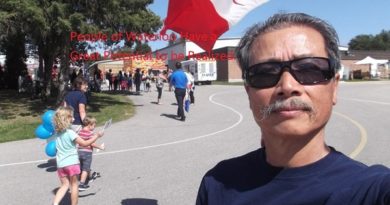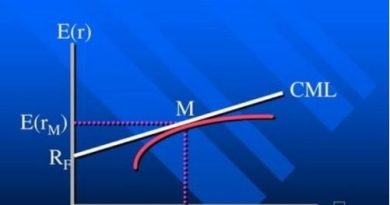The left is pro-immigration, the right is anti-immigration. Who is right?
Xiaoming Guo 郭晓明
Recently, the issue of refugee settlement has sparked a heated debate on Canadian immigration policy. Many refugees in Toronto have been living on the streets for weeks without a home. The Canadian government plans to absorb 500,000 new immigrants per year by 2025, while online exaggeration says that 1.5 million immigrants already arrived last year. Of course, the exaggeration may include many foreign students and those accompanying students who have not immigrated. No matter whether they are an immigrant or not, as long as they enter Canada, they will need housing. This has caused a sharp increase in housing pressure. Usually, when the central bank raised interest rates, house prices would fall. Now that the central bank has raised interest rates, house prices have dropped and rebounded, because the speed of building new houses cannot keep up with the rate of population increase, and the rapid rate of population increase is mainly due to immigrants, refugees, and asylum seekers.
Immigration is an economic policy. As Canada’s population ages due to the retirement of the baby boomers, a sustainable labor force is necessary to maintain Canada’s economic growth and improved living standards. According to the economic assessment of some economists, Canada needs a 2.2% annual increase in the employment population. Modern immigrants are not like the Chinese who came to Canada in the early years. In the era when the Chinese came for Gold Rush and built Pacific Railway, they were men who were 100% pure laborers. But now immigrants need to be more humane, and they have to bring parents, wives, and children, together with some capital and talents.
Canada is rich in resources, and the combination of labor and resources can grow the economy. There is absolutely nothing wrong with immigration policy as economic policy. For example, when oversea students immigrate, the foreign students come first to consume, pay tuition, pay rent, and buy daily necessities. This is a net benefit to Canada’s economic growth. They do not immigrate until they graduate and get a job offer. They merge into the Canadian economy seamlessly. Economic benefits have already been generated. It can be said that the more such immigrants, the better. Moreover, the cost of raising these international students from infants to teenagers is borne by foreign countries, and it does not cost Canada a penny as economic costs.
The problem is that many new immigrants today are refugees and asylum seekers, and this part of the immigration is not the result of economic policy, but the result of political policy. Many of today’s social and economic problems due to immigration are due to refugees and asylum seekers who come in because of Canadian political policies, not because of economic policies.
First, there was a group of asylum seekers crossing the border from the United States into Quebec. The asylum seekers flew from Nigeria on U.S. tourist visas to the U.S. and then crossed the Quebec border into Canada on foot. It is unusual for this group of people to be able to obtain US entry visas. Applying for a US visa is not easy. Moreover, the United States is the country that least welcomes refugees among all its allies. Secondly, these asylum seekers are not poor as they can buy air tickets. They come in wearing Nike shoes and holding mobile phones. These people’s living standards are not low. In order to accommodate these people, the Canadian government paid for them to live in hotels in the tourist resort of Nicaragua Falls. What kind of political asylum is this? No investigation report cannot be seen in the media. However, since they are political asylum and since they can obtain a US entry visa, it must be part of the “democratic soft power” of the United States. Asylum means they are not tolerated in their own countries. These people cannot be climate change refugees. The United States is building the Berlin Wall 2.0 on the US-Mexico border, and it certainly cannot issue visas to refugees. When NATO bombed Libya, the NATO airforce cooperated with ground armed forces to hunt down and kill Gaddafi. These armed forces that cooperate with NATO bombing on the ground are natural allies of democracy. Now the Libyan economy has collapsed, and the slave market has popped out of the collapse. Of course, those who were sold as slaves could not buy air tickets, nor could they apply for US travel visas. These political asylums are mainly settled with the help of the church. The church has many charitable non-governmental organizations overseas. NGOs spread democracy overseas and are the social connections of these democratic political asylums. However, it is still difficult for these refugees to integrate into society and the Canadian economy because NGOs are social activists. Their greatest help to asylum seekers is to inform them of available government programs with funding, which in the end are still the government’s burden. By comparison, economic immigrants include skilled immigrants, who often apply for immigration with an offer letter of employment, and integrate into the Canadian economy as soon as they arrive in Canada.
The second is that the United States abandoned Afghanistan in 2020, and Canada accepted a large number of Afghan refugees. There are many Afghan refugees, and those who can be accepted by Canada must be Afghans working for the Allied Forces. There is a mismatch between that kind of work and the Canadian job market. How many companies need Afghani interpreters? Moreover, many of them are widowed children of freedom fighter martyrs. Afghans are polygamous, and a freedom fighter martyr can leave several women and a bunch of children. According to Afghan Islamic doctrine, many Afghan women do not work, and employment skills are naturally out of the question. Our government values them highly and provides them with welfare benefits. This batch of children who need support and study is the cost of Canada’s economy and the financial burden of the government.
Because of the turmoil in Hong Kong in 2019, Canada accepted another batch of Hong Kong refugees, granted Hong Kong people special immigration channels, lowered the immigration threshold, and provided more assistance for social integration. These are political immigrants for democracy and human rights, not economic immigrants. Their knowledge structure of democracy and the human rights movement is different from the knowledge structure of human resources demanded by the job market. Their skills for democratic movement can be better used for union strikes.
In 2022, another group of Ukrainian refugees came in because of the Ukrainian War. Many of them were studying in Canada and were given special preferential treatment as war immigrants and given basic guarantees of living. There are male and female soldiers in the Ukrainian war, not only young people who resolutely defend Ukraine but also men of the right age stipulated by the government to go to the battlefield. Therefore, many Ukrainian refugees immigrating to Canada are not laborers, but old, weak, sick, and disabled. The proportion of Canadians of Ukrainian origin in the western plains of Canada is very high. After the completion of the Pacific Railway, the immigrants who resettled in the three western provinces were mainly Ukrainians, because the three western provinces, like Ukraine, are all plains, wheat-producing areas, and the world’s bread basket. Therefore, it is relatively easy for Ukrainian refugees to settle in the West. However, this kind of immigration policy is not designed to solve the problem of the aging population structure and may become a burden on the Canadian economy and government finances for a period of time.
There is no market economy in Canada today, only a geopolitical economy. Canadian immigration policy is largely high-jacked by geopolitical policies. Therefore, to accuse the Trudeau government of failure in immigration policy is deceptive. The difficulty of resettling refugees is the cost of Canada’s geopolitical policies. If this is for the noble values of democracy and freedom, there should be no problem with sacrificing the standard of living a little. There is a saying: Give me freedom or give me death. Who cares about a little economic sacrifice with a noble cause? When politicians talk about Canada’s commitment to stand up for democracy and freedom in the international arena, they are all impassioned and swear. But, strangely enough, it is often those politicians who have supported democracy and freedom on the international stage, that attacked Trudeau’s immigration policy the most and most severely. When they attacked Trudeau’s immigration policy, they talked about refugees living on the streets, the increase in crime rate, and the increase in housing costs. The only thing that they avoided talking about these political immigrants was part of Canada’s value diplomacy.
Normal economic migration is not the cause of refugees on the streets, nor of increased crime, nor of increased housing costs. Political immigration is not aimed to produce economic benefits so it could be economic burdens and become the cause of these social problems. These politicians should show moral courage and a sense of justice, and explain to the public that Canadians have to make some economic sacrifices for the cause of democracy and human rights. Most Canadian citizens can accept this cost. But instead of doing that, these politicians are blaming immigrants for everything, creating hatred against newcomers, which is extremely damaging to the Canadian economy. Opposing all immigration indiscriminately will only cause more economic damage to Canada. In the end, political immigration cannot be reduced, but economic immigration could be reduced. Government tax revenue cannot be increased, government debt can only continue to increase, and inflation will continue. Anti-immigration politicians incite racial discrimination and social unrest.
The government and economists have clearly explained the need for Canada’s economic immigration, which is to solve the problem of population aging. However, political immigration is left unaccounted for, leading to confusion in public thinking. Is immigration good or bad? The left is pro-immigration and the right is anti-immigration, tearing apart Canadian society over immigration because the two categories of immigrants are confused. Political immigration does not contribute to economic growth, at least in the short term it is a social and economic burden and a burden on government finances. So why don’t politicians have the courage to explain it to the public? Because value diplomacy failed. Libya was bombed by NATO for the sake of human rights. Is the human rights situation in Libya better or worse today? In order to counter terrorism, NATO occupied Afghanistan, had Afghan terrorist organizations increased or decreased? It is of course Canada’s incumbent responsibility to accept refugees, as refugees come from areas where Canada exerts or supports the influence of its allies to intervene. For example, in the 2019 turmoil in Hong Kong, our government publicly supported it, and of course, it is obligatory for our government to accept Hong Kong refugees.
But democratic governments should be accountable to taxpayers. If taxpayers’ money is spent on democracy and human rights, taxpayers should be reported on the performance of promoting democracy and human rights. In Afghanistan, money was spent and soldiers were sacrificed. How much have human rights and democracy in Afghanistan been improved? Supporting the allies to bomb Libya, how far had it advanced the progress of human rights in Libya? A report must be given to the taxpayer. Otherwise, the government can’t spend taxpayers’ money endlessly for nothing.
Canada accepted refugees, causing social problems, economic problems, and government financial difficulties. Some politicians attack the Trudeau government’s immigration policy but firmly push the Trudeau government to implement value diplomacy. This is a trick for politicians to play dirty politics, promote some policies that cause difficulties for the government, and then use these difficulties to attack the government. They don’t care whether the value diplomacy is effective or not. All they care about is scoring in politics.
There is no moral problem in supporting democracy and human rights internationally. However, using democracy and human rights as an excuse to interfere in the internal affairs of other countries has led to the global refugee crisis, without any achievements in democracy and human rights. It is a waste of taxpayers’ money and endangers Canada’s society and economy. These politics are not reviewed by the party in power, and neither by the opposition parties. Turning a blind eye to these wasteful expenses of value diplomacy has opened a big hole in Canada’s finances. This can’t help but make some voters question, what’s wrong with our democratic government. Why is taxpayer money wasted, instead of advancing democracy and human rights, it hurts Canada’s own society and economy.
Economic immigration is in the national interest of Canada. Political immigration is the cost to Canada. The payment of this cost has not achieved Canada’s international democratic and human rights goals. It has only created a failed country and created refugees so Canada cannot shirk its responsibility to accept these refugees. It can only be said that Canada’s foreign policy is not in line with Canada’s interests, and it is of no benefit to democracy and human rights in the world and even damages the international human rights situation. If it does not damage the international human rights situation, there will not be refugee problems.
To solve the refugee problem, we must find the root cause and solve the problem at the root. Since Canada’s value diplomacy is ineffective, not only ineffective, but also harmful to Canada’s national interests, the current value diplomacy should be abandoned, and the policy of interfering in the domestic affairs of other countries should be abandoned. No matter how high-sounding these policies are described by politicians, they are ineffective and harmful policies that must be abandoned. Those politicians who oppose immigration should not play dirty politics. To solve the immigration problem, the first thing to oppose is the foreign policy of allies who create turmoil and refugees, and oppose the foreign policy of wasting taxpayers’ money and harming taxpayers’ interests.






